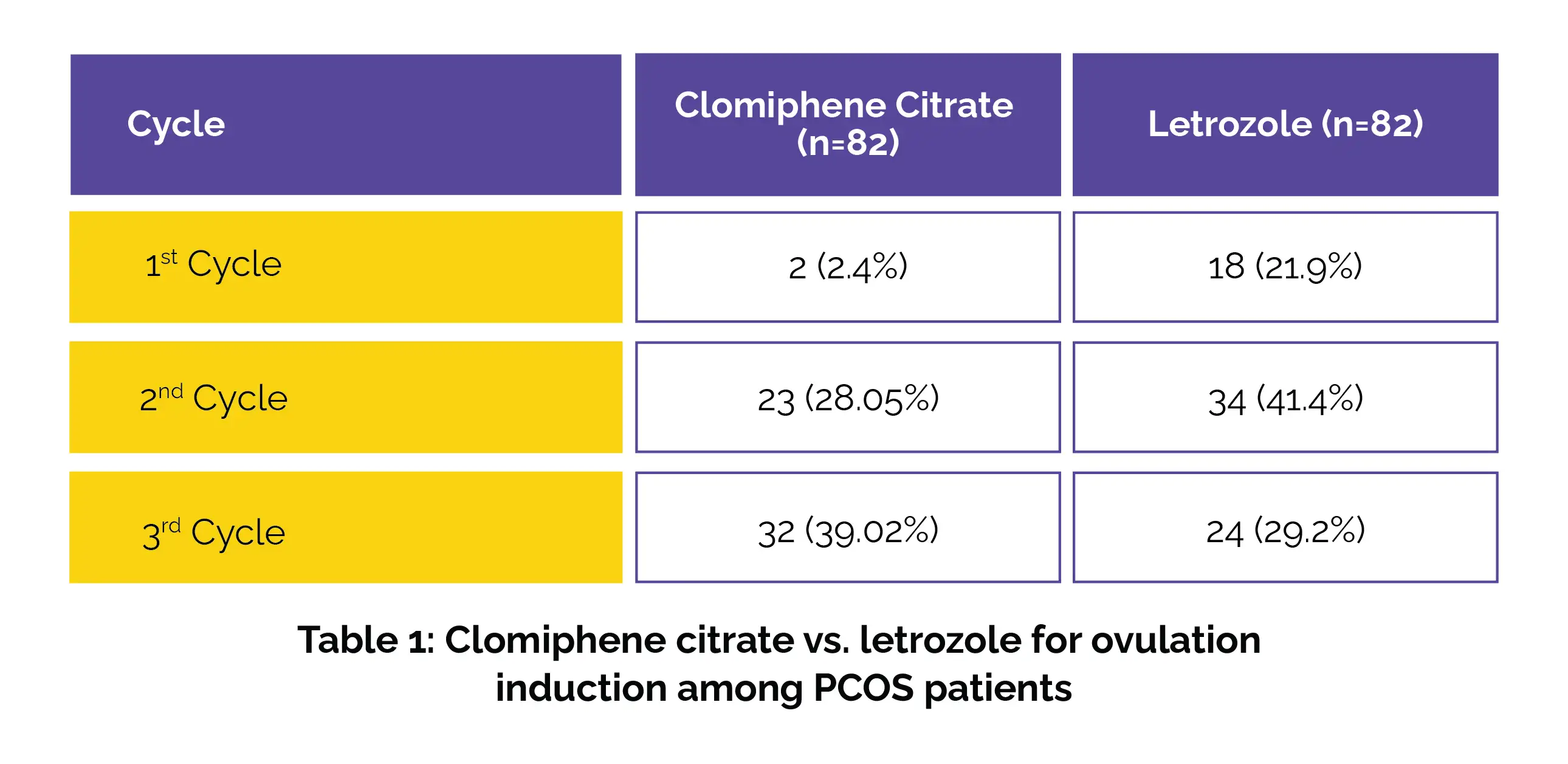Categories
Change Password!
Reset Password!


Letrozole demonstrates higher efficacy than clomiphene citrate for ovulation induction in primary ovarian sub-fertility, showing better response rates in earlier cycles.
A new study conducted by Urooj Yasir Khan and other researchers has revealed that letrozole may be a more effective alternative to clomiphene citrate for ovulation induction in women struggling to conceive due to primary ovarian sub-fertility. The randomized controlled trial, which included 164 women (age 18-40 years), compared the two medications to determine their usefulness in stimulating ovulation.
Volunteers were randomly assigned to two groups using the lottery method, with 82 receiving letrozole and 82 receiving clomiphene citrate. Ovulation rates were tracked over three cycles. The results indicated better outcomes in the letrozole group when compared to the clomiphene citrate group. Letrozole demonstrated higher efficiency across multiple treatment cycles, with a greater proportion of positive responses observed in earlier cycles (Table 1):

Beyond ovulation rates, the study highlighted the advantages of letrozole’s lower dosage requirements and its rapid effectiveness, which may make it a preferred choice for first-line therapy in women struggling with infertility. While clomiphene citrate remains a widely used option, letrozole’s ability to trigger ovulation earlier in the treatment process could remarkably benefit those seeking faster conception. These results further strengthen the evidence supporting letrozole as a valuable therapy in reproductive medicine.
Journal of The Society of Obstetricians and Gynaecologists of Pakistan
Comparison of Clomiphene Citrate and Letrozole in induction of ovulation among patients with PolyCystic Ovarian syndrome (PCOS) Primary Sub-fertility
Urooj Yasir Khan et al.
Comments (0)